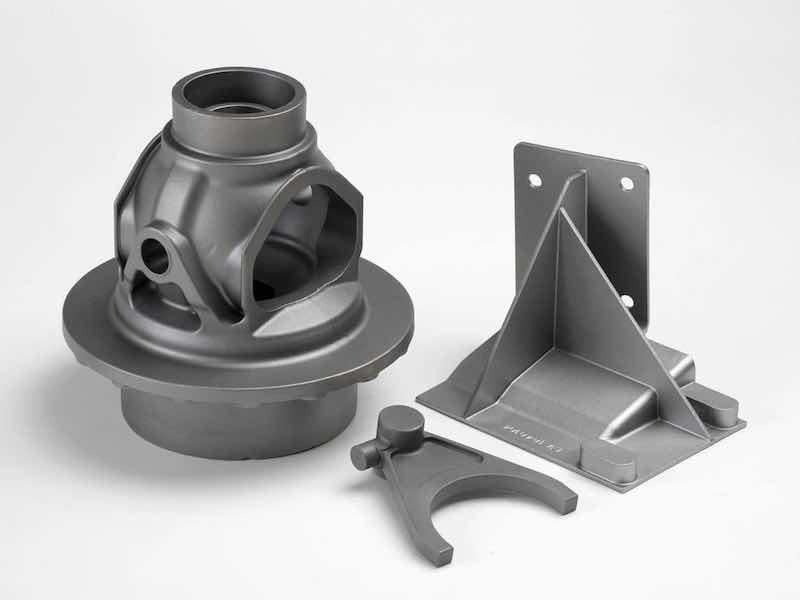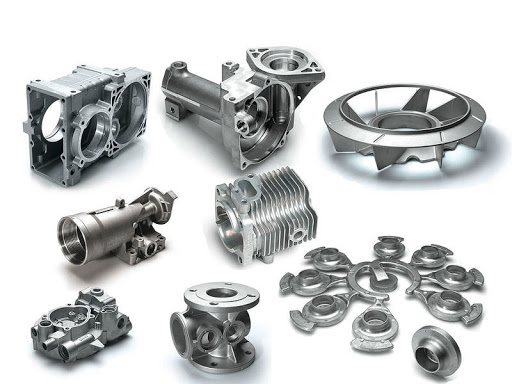Top 10 reasons to choose Wisconsin Aluminum Foundry for your project
Wiki Article
Comprehending the Duty of Aluminum Foundry in Creating High-Quality Metal Products
Aluminum factories are necessary in the manufacturing of high-quality metal products. They employ numerous casting techniques, such as sand and pass away spreading, to achieve accuracy and longevity. With strenuous quality assurance measures in position, these facilities guarantee that their products meet market criteria. As industries advance, the duty of Aluminum shops remains to adapt. This questions regarding future technologies and sustainability methods that might redefine their effect.The Aluminum Casting Refine: Technologies and strategies
The Aluminum spreading procedure has advanced significantly, integrating different strategies and innovations that improve effectiveness and product high quality. Commonly, approaches such as sand casting and pass away casting were predominant; however, improvements have actually presented procedures like financial investment spreading and low-pressure die spreading. These advancements allow suppliers to attain detailed styles and tighter resistances, minimizing material waste and improving overall efficiency.Furthermore, the combination of computer-aided style (CAD) and simulation software program permits for even more precise modeling and testing, ensuring that potential concerns are recognized early in the manufacturing cycle. Additionally, advancements in alloy formulations result in enhanced mechanical residential properties and deterioration resistance
These developments not just streamline manufacturing yet also advertise sustainability by decreasing energy intake and discharges. As the market proceeds to welcome new technologies, the Aluminum casting process stays a crucial part in producing premium steel products that fulfill varied market needs.
Applications of Aluminum in Numerous Industries
Aluminum's convenience and desirable buildings make it a useful material throughout various sectors. In the automotive field, Aluminum is commonly made use of for its lightweight qualities, contributing to enhanced gas effectiveness and efficiency. The aerospace sector also advantages, as aluminum's high strength-to-weight proportion enhances airplane style while preserving security requirements.In construction, Aluminum is favored for its sturdiness and resistance to deterioration, making it optimal for window structures, roof covering, and structural components. The product packaging market leverages light weight aluminum's non-toxic nature and recyclability, specifically in food and beverage containers, making certain safety and sustainability.
In addition, the electrical industry utilizes Aluminum for its outstanding conductivity in electrical wiring and transmission lines. The durable goods market makes use of Aluminum in items ranging from kitchen area utensils to electronic devices, stressing its adaptability. As a result, Aluminum plays an essential role in improving capability, efficiency, and sustainability throughout varied applications.
Advantages of Utilizing Aluminum Over Various Other Metals
While numerous metals are utilized in numerous applications, Aluminum stands apart because of its special combination of homes that offer several benefits over other materials. Its lightweight nature greatly lowers transport expenses and energy usage, making it suitable for industries such as automobile and aerospace. Light weight aluminum's outstanding corrosion resistance boosts sturdiness, prolonging the life of items and reducing upkeep needs. Furthermore, it exhibits high thermal and electric conductivity, making it ideal for electric and thermal management applications.The metal's pliability allows for intricate layouts and complicated forms, giving versatility in manufacturing processes. Light weight aluminum is 100% recyclable without loss of quality, promoting sustainability and minimizing environmental effect. These attributes, integrated with its fairly affordable contrasted to other steels, position Aluminum as a recommended option throughout various fields. Overall, the benefits of Aluminum add to its increasing popularity in the manufacturing of premium steel products

High Quality Control Steps in Aluminum Foundries
Quality assurance measures play a necessary function in the Aluminum Foundry process, view website making certain that the end products satisfy strenuous market criteria and consumer expectations. These procedures typically begin with material assessment, where raw Aluminum is evaluated for pureness and make-up. As soon as the casting process begins, temperature level control is essential; maintaining excellent molten metal temperatures avoids issues such as porosity and shrinkage.Furthermore, non-destructive testing (NDT) techniques, consisting of radiographic and ultrasonic examinations, are utilized to find inner defects without harming the spreadings. Aesthetic examinations are likewise conducted at various stages to identify surface area flaws.
Furthermore, adherence to well established top quality monitoring systems, such as ISO standards, is crucial for maintaining consistency and traceability throughout the manufacturing process. Regular audits and worker training on top quality standards add to a total culture of excellence, making sure that the products not only meet yet go beyond client assumptions in efficiency and resilience.
The Future of Aluminum Foundries: Trends and Sustainability
As the Aluminum Foundry sector evolves, emerging patterns and a concentrate on sustainability are improving its landscape. Raising need for light-weight and resilient materials in fields like automotive and aerospace drives advancement in Aluminum spreading methods. Advanced modern technologies, such as expert system and automation, are boosting production performance and accuracy while minimizing waste.Sustainability is becoming an extremely important issue, triggering foundries to apply eco-friendly methods, including recycling Aluminum scrap and using renewable resource sources. The change in the direction of circular economic situation principles encourages foundries to lessen environmental influence while meeting customer assumptions for sustainable products.
Furthermore, governing stress are pressing the sector towards cleaner operations, fostering partnership between manufacturers and ecological companies. As these patterns assemble, the future of Aluminum factories will likely be defined by a dedication to sustainability, effectiveness, and quality, ensuring their significance in an open market.
Frequently Asked Questions
What Are the Ecological Impacts of Aluminum Foundries?
Light weight aluminum foundries add to ecological impacts through power consumption, greenhouse gas exhausts, and potential air and water contamination. Additionally, mining bauxite for Aluminum can lead to habitat devastation and soil destruction, affecting neighborhood ecosystems.

Exactly How Do Foundries Ensure Employee Security Throughout Manufacturing?
Foundries implement extensive safety protocols, consisting of safety devices, ventilation systems, and regular training. They conduct risk evaluations and preserve security standards to lessen threats, ensuring a safer working environment for employees throughout the production procedure.What Certifications Should an Aluminum Foundry Have?
A light weight aluminum Foundry should have certifications such as ISO 9001 for top quality management, ISO 14001 for ecological administration, and OSHA conformity for security requirements. These qualifications assure adherence to sector guidelines and commitment to quality and safety practices.Exactly How Does Aluminum Recycling Affect Foundry Operations?
Aluminum reusing substantially enhances Foundry procedures by supplying More about the author a cost-efficient basic material resource, reducing power intake, and reducing environmental impact - Metal Castings. It also encourages lasting practices, permitting factories to preserve competitiveness in a swiftly developing marketWhat Prevail Flaws in Aluminum Castings?
Typical problems in Aluminum castings include porosity, shrinkage, inclusions, and surface area blemishes. These problems can occur from improper mold and mildew layout, insufficient pouring techniques, or contamination throughout Aluminum Castings the melting and casting processes, affecting general item top quality.
Report this wiki page